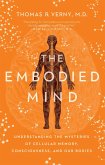

Alle Infos zum eBook verschenken

- Format: ePub
- Merkliste
- Auf die Merkliste
- Bewerten Bewerten
- Teilen
- Produkt teilen
- Produkterinnerung
- Produkterinnerung

Hier können Sie sich einloggen

Bitte loggen Sie sich zunächst in Ihr Kundenkonto ein oder registrieren Sie sich bei bücher.de, um das eBook-Abo tolino select nutzen zu können.
This book focuses on the key ideas of the most important modern psychologists. Nineteen classic "great ideas" in psychology are critically assessed in their cultural and historical context, with topics ranging from neuroscience to personality, development to socio-cultural issues. The simple narrative style and chapter structure, combined with "critical thinking questions" and a shortlist of essential readings for further study at the end of each chapter, provides an ideal approach for anyone interested in learning about the key ideas and theories in psychology
- Geräte: eReader
- mit Kopierschutz
- eBook Hilfe
- Größe: 0.51MB
- FamilySharing(5)
![Making Our Ideas Clear (eBook, ePUB) Making Our Ideas Clear (eBook, ePUB)]() Making Our Ideas Clear (eBook, ePUB)42,95 €
Making Our Ideas Clear (eBook, ePUB)42,95 €![Jung: The Key Ideas (eBook, ePUB) Jung: The Key Ideas (eBook, ePUB)]() Ruth SnowdenJung: The Key Ideas (eBook, ePUB)3,99 €
Ruth SnowdenJung: The Key Ideas (eBook, ePUB)3,99 €![On Aggression (eBook, ePUB) On Aggression (eBook, ePUB)]() Konrad LorenzOn Aggression (eBook, ePUB)18,95 €
Konrad LorenzOn Aggression (eBook, ePUB)18,95 €![The Great Within (eBook, ePUB) The Great Within (eBook, ePUB)]() Han F. de WitThe Great Within (eBook, ePUB)14,95 €
Han F. de WitThe Great Within (eBook, ePUB)14,95 €![Great Myths of Adolescence (eBook, ePUB) Great Myths of Adolescence (eBook, ePUB)]() Jeremy D. JewellGreat Myths of Adolescence (eBook, ePUB)14,99 €
Jeremy D. JewellGreat Myths of Adolescence (eBook, ePUB)14,99 €![Tyrannical Minds (eBook, ePUB) Tyrannical Minds (eBook, ePUB)]() Dean A HaycockTyrannical Minds (eBook, ePUB)9,88 €
Dean A HaycockTyrannical Minds (eBook, ePUB)9,88 €![The Embodied Mind (eBook, ePUB) The Embodied Mind (eBook, ePUB)]() Thomas R. VernyThe Embodied Mind (eBook, ePUB)11,86 €
Thomas R. VernyThe Embodied Mind (eBook, ePUB)11,86 €-
-
-
Dieser Download kann aus rechtlichen Gründen nur mit Rechnungsadresse in A, B, BG, CY, CZ, D, DK, EW, E, FIN, F, GR, HR, H, I, LT, L, LR, M, NL, PL, P, R, S, SLO, SK ausgeliefert werden.
- Produktdetails
- Verlag: Simon + Schuster LLC
- Seitenzahl: 320
- Erscheinungstermin: 1. Oktober 2013
- Englisch
- ISBN-13: 9781780744506
- Artikelnr.: 41006007
- Verlag: Simon + Schuster LLC
- Seitenzahl: 320
- Erscheinungstermin: 1. Oktober 2013
- Englisch
- ISBN-13: 9781780744506
- Artikelnr.: 41006007
- Herstellerkennzeichnung Die Herstellerinformationen sind derzeit nicht verfügbar.
What makes an Idea Great?
Great Ideas and Orientations in Psychology
Concluding Comment
2. The Psychological Laboratory
The Laboratory Becomes Central to
Psychology
Critically Assessing the Psychology Laboratory
Concluding Comment
3. Placebo Effect
Factors to Consider in Testing for the Placebo Effect
Meaning and the Active Placebo
Complicating Factors
Concluding Comment
4.The Freudian Unconscious
Early History of the Unconscious
The Freudian Unconscious
The Unconscious Re-assessed
Concluding Comment
5.The Memory Trace: Long Term Potentiation (LPT)
Pioneering Ideas
Pioneering Experimental Research
Debate Over Long-Term Potentiation
Concluding Comment
6.Learning
The Law of Effect and Classical Conditioning
The American Context and Instrumental Learning
Learning, Cognitive Neuroscience, and Culture
Concluding Comment
7.Intelligence Tests
Why Are Intelligence Tests Important?
At What Age, If Ever, Does Intelligence Become Fixed?
What Are the Contributions of Nature and Nurture to Intelligence?
Is There One or Multiple Intelligence?
Concluding Comment
8.Artificial Intelligence
The Context of Artificial Intelligence
The 'Long Debate' and Artificial Intelligence
Concluding Comment
9.Stage Models of Development
The Major Stage Models
Core Assumptions
Concluding Comment
10.The Zone of Proximal Development
Assumptions of the Traditional Approach
A Vygotskian Approach to Child Development
Concluding Comment
11.Attachment
The Historical Context of the Idea
Bowlby's Four Phase Model
Variations on the Attachment Theme
Concluding Comment
12.Displaced Aggression
The Idea of Displaced Aggression in Wider Context
The Assumed Association Between Frustration and Aggression
Displaced Aggression and Freud's Intergroup Psychology
Concluding Comment
13.Personality Traits
Methodological Dilemmas
Conceptual Dilemmas
Concluding Comment
14.The Self
The Sense of Self
Self-Perception
Self-Presentation
Concluding Comment
15.Conformity to Group Norms
Conformity to Arbitrary Norms
Power, Norms, and Conformity
Concluding Comment
16.Obedience to Authority
The Experimental Study of Obedience
Why Are Milgram's Obedience Studies Important?
Lessons From Psychological Research on Obedience
Concluding Comment
17.Feminist Psychology
The Cultural and Historical Context
Discovering and Interpreting Gender Differences
Concluding Comment
18.Multicultural Psychology
Assimilation and Identity
Multiculturalism and Identity
Concluding Comment
19.Evolutionary Psychology
The Historical Context of Darwin's Evolutionary Theory
Genetics and Evolutionary Psychology
Genes as 'Causes' of Behavior
Concluding Comment
20.Social Constructionism
The Context and Background of Social Constructionism
The Main Implications of Social Constructionism
Concluding Comment
What makes an Idea Great?
Great Ideas and Orientations in Psychology
Concluding Comment
2. The Psychological Laboratory
The Laboratory Becomes Central to
Psychology
Critically Assessing the Psychology Laboratory
Concluding Comment
3. Placebo Effect
Factors to Consider in Testing for the Placebo Effect
Meaning and the Active Placebo
Complicating Factors
Concluding Comment
4.The Freudian Unconscious
Early History of the Unconscious
The Freudian Unconscious
The Unconscious Re-assessed
Concluding Comment
5.The Memory Trace: Long Term Potentiation (LPT)
Pioneering Ideas
Pioneering Experimental Research
Debate Over Long-Term Potentiation
Concluding Comment
6.Learning
The Law of Effect and Classical Conditioning
The American Context and Instrumental Learning
Learning, Cognitive Neuroscience, and Culture
Concluding Comment
7.Intelligence Tests
Why Are Intelligence Tests Important?
At What Age, If Ever, Does Intelligence Become Fixed?
What Are the Contributions of Nature and Nurture to Intelligence?
Is There One or Multiple Intelligence?
Concluding Comment
8.Artificial Intelligence
The Context of Artificial Intelligence
The 'Long Debate' and Artificial Intelligence
Concluding Comment
9.Stage Models of Development
The Major Stage Models
Core Assumptions
Concluding Comment
10.The Zone of Proximal Development
Assumptions of the Traditional Approach
A Vygotskian Approach to Child Development
Concluding Comment
11.Attachment
The Historical Context of the Idea
Bowlby's Four Phase Model
Variations on the Attachment Theme
Concluding Comment
12.Displaced Aggression
The Idea of Displaced Aggression in Wider Context
The Assumed Association Between Frustration and Aggression
Displaced Aggression and Freud's Intergroup Psychology
Concluding Comment
13.Personality Traits
Methodological Dilemmas
Conceptual Dilemmas
Concluding Comment
14.The Self
The Sense of Self
Self-Perception
Self-Presentation
Concluding Comment
15.Conformity to Group Norms
Conformity to Arbitrary Norms
Power, Norms, and Conformity
Concluding Comment
16.Obedience to Authority
The Experimental Study of Obedience
Why Are Milgram's Obedience Studies Important?
Lessons From Psychological Research on Obedience
Concluding Comment
17.Feminist Psychology
The Cultural and Historical Context
Discovering and Interpreting Gender Differences
Concluding Comment
18.Multicultural Psychology
Assimilation and Identity
Multiculturalism and Identity
Concluding Comment
19.Evolutionary Psychology
The Historical Context of Darwin's Evolutionary Theory
Genetics and Evolutionary Psychology
Genes as 'Causes' of Behavior
Concluding Comment
20.Social Constructionism
The Context and Background of Social Constructionism
The Main Implications of Social Constructionism
Concluding Comment







